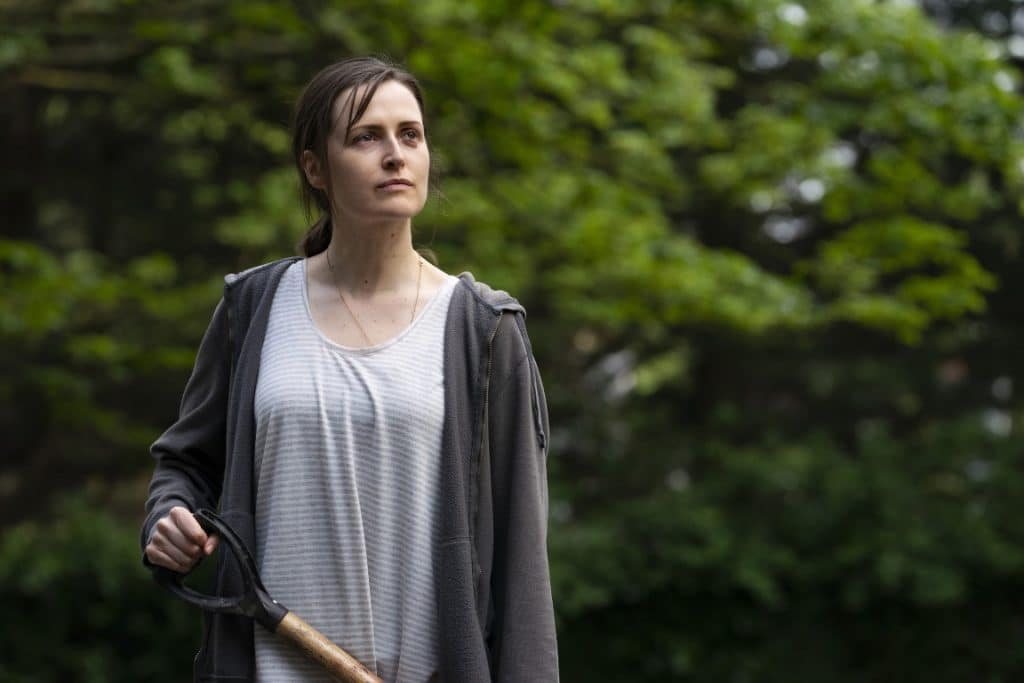Read also:
How to Watch FX Live Without CableHow To Watch AMC Without CableHow to Watch ABC Without CableHow to Watch Paramount Network Without CablePhyllida Lloyd and writer-star Clare Dunne delicately handle tough subject matter in a responsible, deft character drama.
Obvious to those in Ireland and the UK, Herself’s title carries a second meaning that will likely fly under the radar for most American viewers. It isn’t merely a reflexive pronoun, it’s a term of respect and familiarity that can also mean “a woman of consequence” or, more aptly for this film, “mistress of the house.” Because Herself is the story of how one woman ends up finding herself by building her very own home, brick by brick.
Sandra (Clare Dunne) has just become a single mother to two young girls after fleeing her abusive partner, Gary (Ian Lloyd Anderson). But Ireland’s housing waitlist is long and living in the airport hotel the government has put her up in is unsustainable so Sandra decides to take matters into her own hands. Inspired by some online tutorials, she decides that if she can’t find a home, she’ll build herself one. Her employer and a long-time friend of her mother’s, Peggy (Harriet Walter, Killing Eve, The Crown), steps in to offer her a plot of land and a helping hand, and before you know it, a rag-tag group of kind-hearted neighbors have come together to make Sandra’s dream come true.
Star Clare Dunne is also the screenwriter for the project, along with Malcolm Campbell, and the two have crafted a fairly tight script that understands how to delicately handle its subject matter. It’s an ultimately sweet-hearted drama that refrains from being treacly. And while Sandra’s abuse is central to her character and to the story, Dunne and Campbell don’t play it up for cheap drama. In fact, most of the abuse is seen in quick flashes to illustrate Sandra’s PTSD.

The script works well under Phyllida Lloyd’s (Mamma Mia!, The Iron Lady) direction, which is fairly understated, albeit a little over-reliant on Steadicam. But Lloyd has built her career on putting women at the center of the stories she tells, making her a perfect match for this project. Together, Dunne and Lloyd know how to tell Sandra’s story in a way that neither victimizes nor blames her and which prioritizes her personhood above her trauma.
Where the film struggles, however, is in the setup. It leapfrogs from point to point in order to get its characters where they need to be. Sandra goes from a single Google search of “how to build a house” to committing fully and completely to doing it in one fell swoop and the jump feels enormous. It’s even occasionally unclear what characters’ relationships are to one another—we don’t learn that Peggy (Harriet Walter) is more than just Sandra’s employer, but a friend of her mother’s until far too late. The information shouldn’t be a surprise and it isn’t a reveal, these are just basic facts about the people that populate Sandra’s world and the film isn’t good at giving them to us.
Thankfully, these stumbling blocks don’t detract from what is otherwise a solid tale of a woman’s recovery from abuse. She is the architect of her own success and the movie centers this story appropriately. By focusing more on her day-to-day struggles and highlighting the harsh reality of the Irish legal system, Sandra is so much more than her trauma.
Herself knows how to highlight her joy and her triumphs in such a way that they overshadow her pain. She’s not just a mother trying to get by, she’s a mother that dances with her children in the kitchen and she’s resilient and full of more strength than she ever imagined. And that’s a story worth hearing.
Herself is currently streaming on Amazon Prime Video.